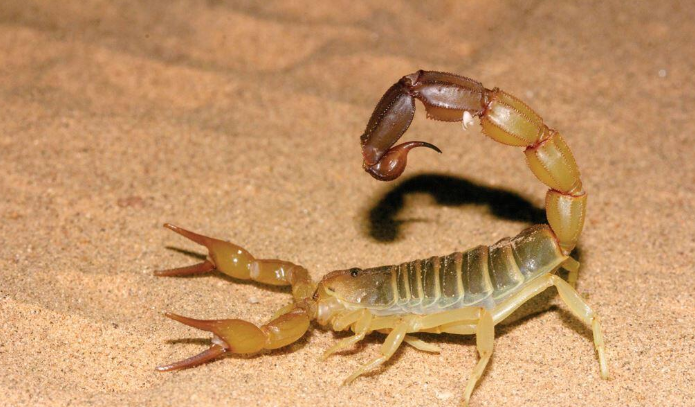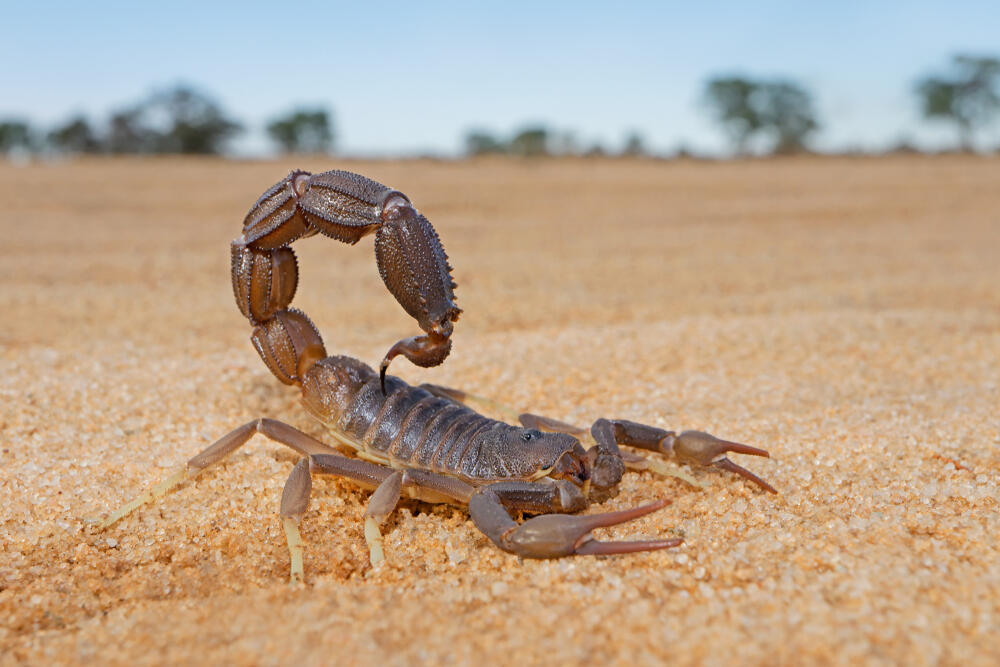Getting your Trinity Audio player ready...
In less than a day, two children from the south, 2 and 6 years of age, were stung by a scorpion. Both children were treated by Dr. Said Abu Abed, acting Director of the Pediatric Department at Soroka Hospital in Be'er Sheva. "This phenomenon of scorpion stings is typical for the southern region," he said in an interview with Ynet. "We know of 20 varieties of scorpions in Israel, and three of them are more common in the south. The six-year-old boy arrived in a very serious condition."
More Stories:
Was his serious condition a result of the sting or was he brought to the hospital too late?
"It was caused by the sting. He suffered severe respiratory damage and damage to the nervous system. He arrived at the hospital immediately. We treated him in a shock room, and after his condition stabilized, he received advanced respiratory assistance and we also gave him an antibody. Later he was transferred to the pediatric intensive care unit where his condition improved, And now there is no longer a danger to his life. He is in good condition."
Could a child stung by a scorpion be more seriously hurt than an adult?
"True. Every year, around 270 children come to the hospital due to scorpion stings. In the south, this is particularly common, because many people in this region live in tents, and it is easier for a scorpion to enter and sting. It can also happen in cities and on construction sites. The scorpion senses danger, attacks a child and stings him. You have to pay attention to this phenomenon. Sometimes the scorpion gets inside shoes."
What should be done when bitten?
"Take something to relieve pain and go to the hospital as soon as possible. Sometimes you don't feel anything at first so the symptoms can appear half an hour to an hour after the bite and you still have to go to the hospital. The younger the person, the greater the risk of long-term injury. The symptoms can be very severe You don't need to rub the area or use a compression. Just go to the hospital."
Among the symptoms are severe pain, rapid pulse, sweating and vomiting. Among the scorpions that live in Israel, the most common and dangerous are the yellow scorpion and the black scorpion with the big tail. They are common in all areas except the Carmel, the dunes of the coastal plain and the valleys. Scorpions usually live in stone fences, under flat stones or in human dwellings. they are known to clean and smooth out their territory. Sometimes they also dig a diagonal burrow that is up to 20 centimeters deep.
Dr. Said Abu Abed: "Sometimes you don't feel anything at first so the symptoms can appear half an hour to an hour after the bite and you still have to go to the hospital. The younger the person, the greater the risk of long-term injury."
The sting of a venomous scorpion, especially the yellow scorpion, is very dangerous to humans and can cause rapid death. The venom contains neurotoxic toxins, which damage the nervous system, and cardiotoxic toxins, which affect the heart and blood vessels.
The symptoms after a scorpion sting are severe pain and swelling at the site of the sting, rapid pulse, restlessness, facial redness, sweating and vomiting. With the spread of the venom, increased salivation, tearing, decreased level of consciousness, breathing difficulties and an erection caused by damage to the spinal cord.
In case of a sting, cool the area and bring the person to the hospital quickly. If possible, you should also bring the scorpion, for the purpose of identifying it. In some cases, treatment is given using a serum that neutralizes the effect of the venom.



